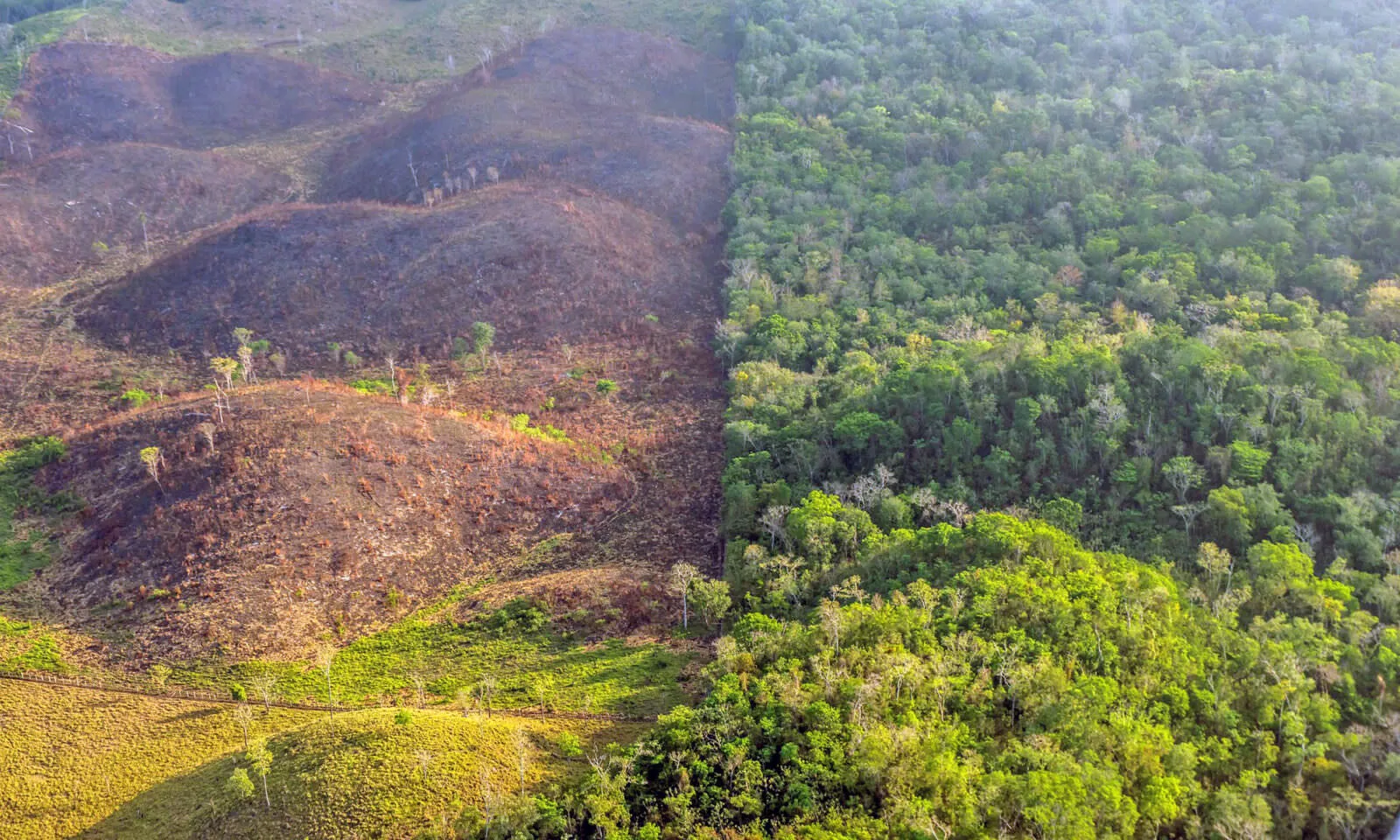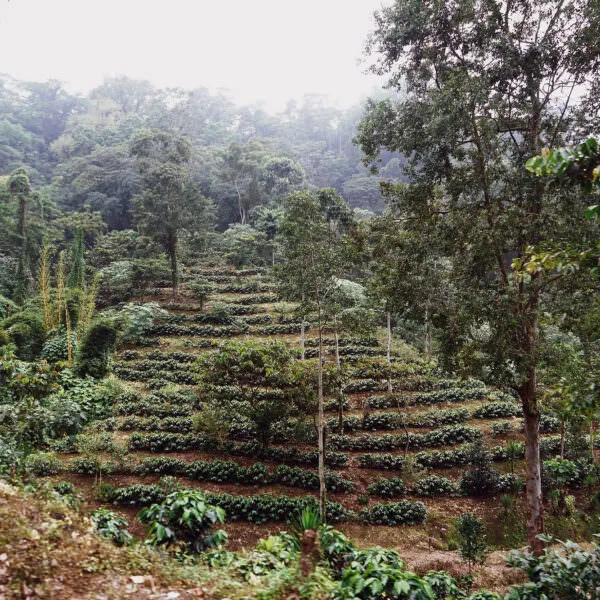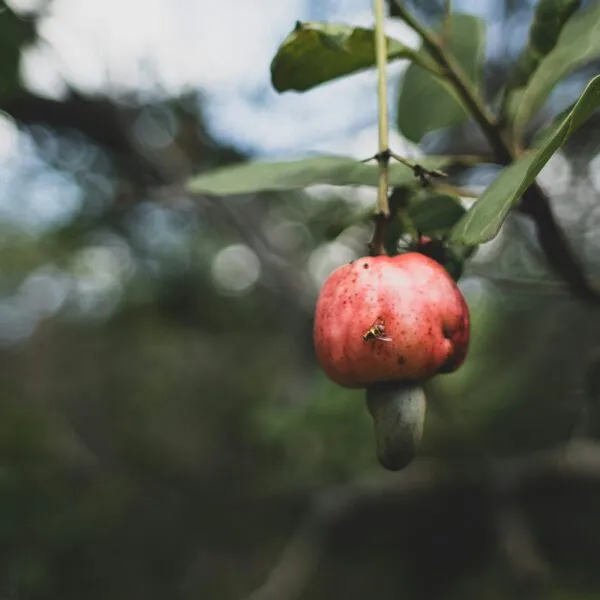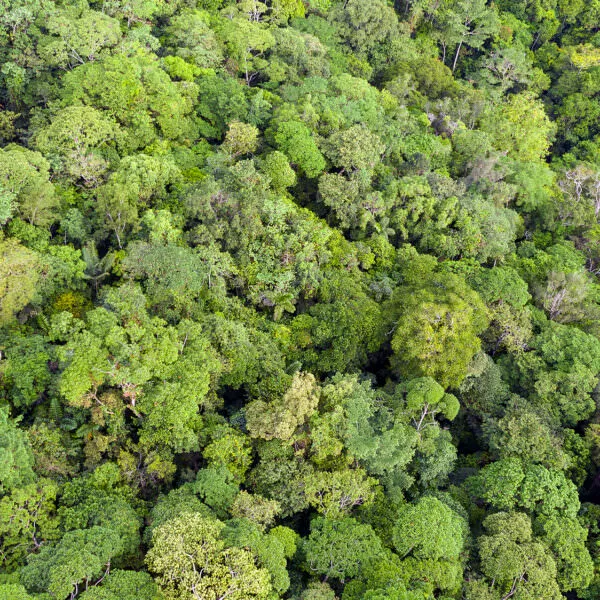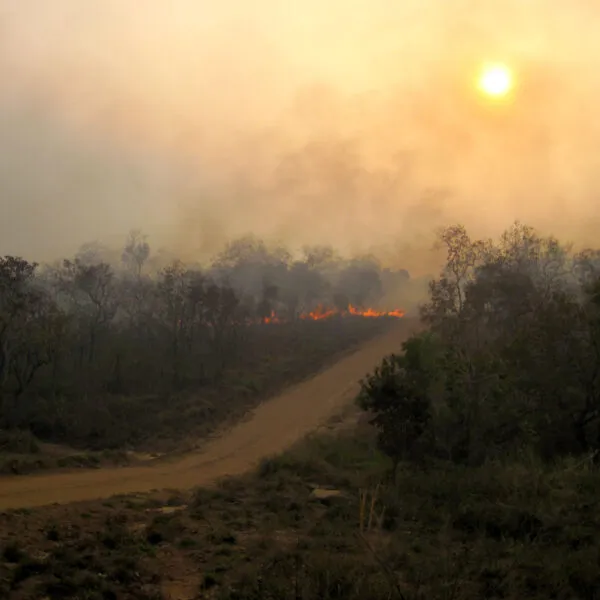Last August’s horrifying surge of manmade fires in the Amazon shined a powerful light on the destruction of rainforests around the world. According to Global Forest Watch, we lost 11.9 million hectares of tropical forests in 2019 alone, and rainforest destruction continues at a rapid rate—threatening the millions of people who live in forests and destroying a powerful natural climate solution.
The reasons behind the destruction are complex, but malignant politics, climate change, and a global economy built on reckless natural resource exploitation are mostly to blame. Large-scale agribusinesses raze forests unchecked in order to grow mega-crops like soy and palm, and their shareholders reap the rewards. In the face of devastating poverty or climate-induced crop failure, smallholder farmers sometimes resort to cutting down trees to expand cropland. Damaging politics and policies are to blame, too: Brazil’s President Jair Bolsonaro, for example, not only dismantled forest protections when he took office earlier this year, but he encouraged slash-and-burn farming and illegal incursions into Indigenous land. Bolivia’s President Evo Morales similarly gutted environmental protections in the name of development.
Healthy forests and vibrant communities are an essential part of the global climate solution. Sign up to learn more about our growing alliance.
Because the causes of forest destruction are varied and complex, protecting forests requires sustained collaboration and investment. Over the course of our 30-year history, the Rainforest Alliance has developed proven, multifaceted strategies for protecting forests—a comprehensive, 360-degree approach that puts communities and livelihoods at its center. Here are the key elements.
Stopping rainforest destruction by boosting rural prosperity
The most effective, scientifically proven strategy for protecting forests from agricultural expansion, illegal logging, and mining—as well as from fires—is to build more sustainable, rural economies in collaboration with communities that live in and around them. To that end, the Rainforest Alliance offers training to farmers in methods that generate higher yields on existing cropland; these methods also protect soils and waterways. Our work with forest communities focuses on cultivating thriving businesses that harvest timber—or non-timber products like nuts and palm fronds—according to rigorous forest management plans. Trainings on financial literacy and business management also provide tools to support communities seeking alternatives to clearing forests, as do market connections to buyers who are committed to responsible sourcing.
Communities we work with in the Maya Biosphere Reserve have achieved a net forest gain in the areas they manage through the application of this strategy. Partner communities in the Peruvian Amazon have created bustling businesses from sustainable timber, ecotourism, and Brazil nuts—all of which gird them against the advances of illegal loggers and miners. In Ghana, an innovative land management board we co-created with 36 cocoa farming communities (spread out over 29,000 hectares) carried out the planting of 58,600 native tree seedlings in degraded areas. In southern and central Mexico, cooperative forest communities have created thriving timber and furniture businesses with technical assistance from the Rainforest Alliance.
Building responsible supply chains
In recent years, hundreds of companies publicly promised to eliminate deforestation from their supply chains by 2020. Some made significant progress, but many failed to realize any movement toward their goals. The Accountability Framework, a roadmap for sustainability developed by a consortium of NGOs that includes the Rainforest Alliance, provides guidelines, monitoring tools, and benchmarks to provide clear guidance to companies on the path to sustainability.
Certification can be a powerful tool—in combination with other interventions—for transforming supply chains. Third-party sustainability certification programs like ours remain one of the most effective sustainable development tools available in the world today (as compared to company verification programs, which provide less transparency). Certification can also catalyze training for smallholder farmers: When a company commits to purchasing certified crops, for example, it will often support farmers in meeting the requirements for certification by providing trainings on phasing out dangerous pesticides, integrated weed management, record-keeping, composting, soil fertility, and more. We recently published our new and enhanced 2020 Certification Program to accelerate environmental, social, and economic improvement.
Influencing policy
Finally, the Rainforest Alliance works all over the world to advance policies that enable sustainability transformation; we also serve as expert advisor to several companies and governmental bodies seeking guidance on implementation. Currently, for example, the Rainforest Alliance is working to ensure that the European Union’s Action Plan on Deforestation includes political, technical, and financial support to effectively meet its aims. We are encouraging the EU to develop and consider legislation that requires companies to identify, prevent, mitigate, and account for their impacts on tropical forests and human rights. As an organization with a long track record of marshalling market forces to improve lives and protect forests, we are uniquely positioned now to influence both companies and governments on far-reaching policy and legislation.

Our work in Jembrana, Bali, is a good example of how we influenced policy to support improved farmer livelihoods and landscapes. In 2017, through our Sector Partnerships Program, we launched a national and regional advocacy and lobbying effort with the Kalimajari Foundation, an Indonesian civil society organization, to support implementation of a national policy requiring companies to buy locally fermented cocoa beans. With our support, Kalimajari was able to gain traction up and down the supply chain, first training farmers in sustainable cultivation and fermenting, and then convincing companies to purchase from these local farmers; furthermore, the Indonesian government adopted Kalimajari’s model as its own national model for quality cocoa. Working at both the regional and national levels, our advocacy team advances policies in countries with standing forests in order to contribute to a legal landscape where technical training and supply-chain strategies can be most effective.
